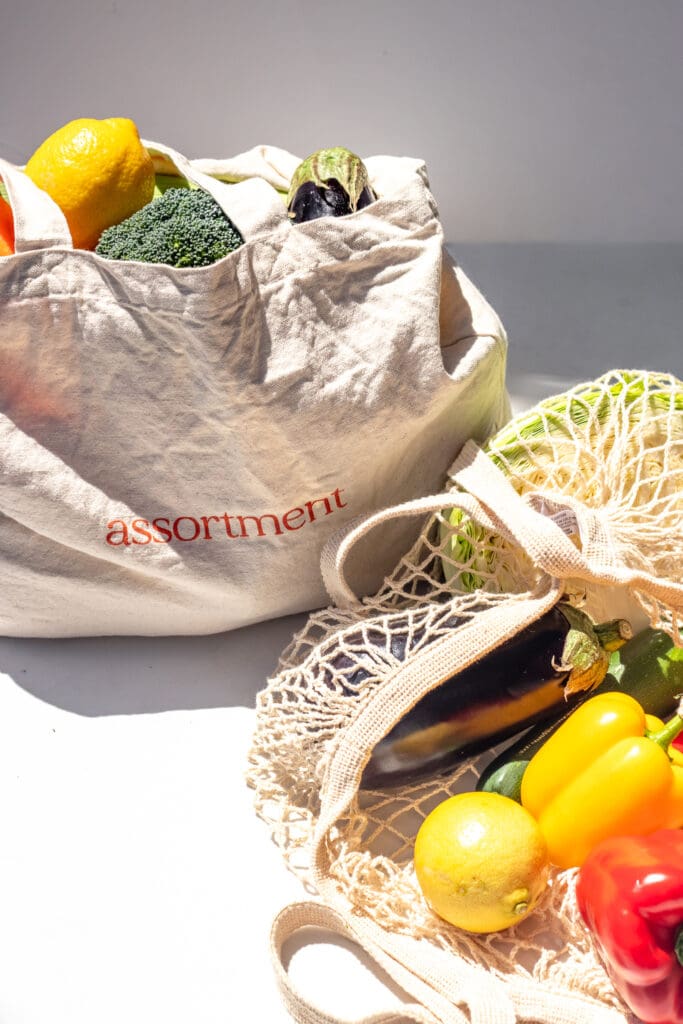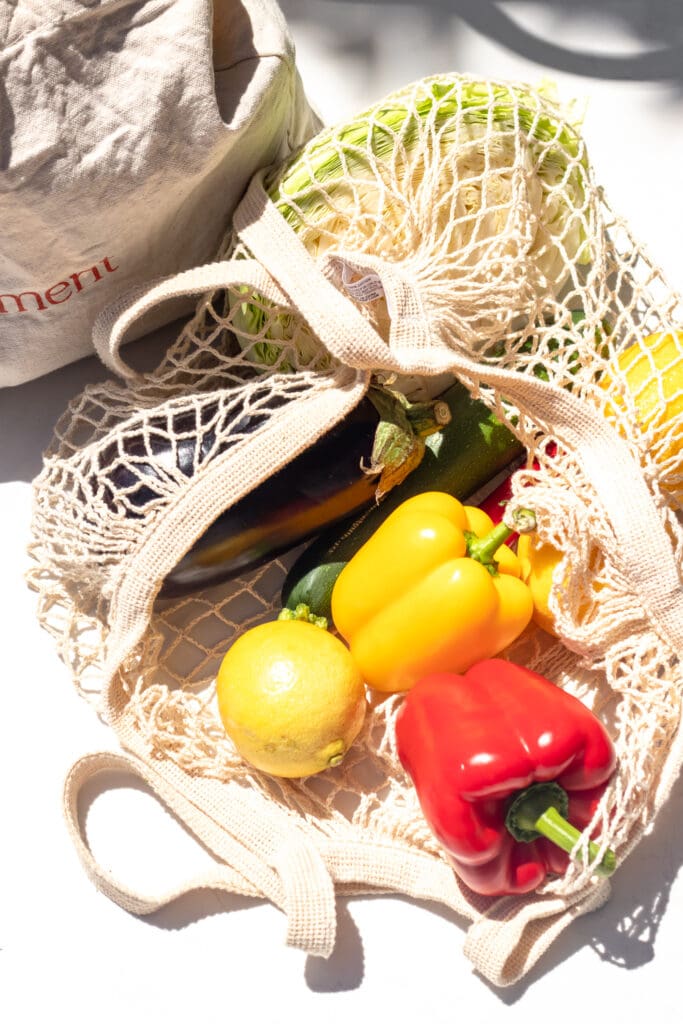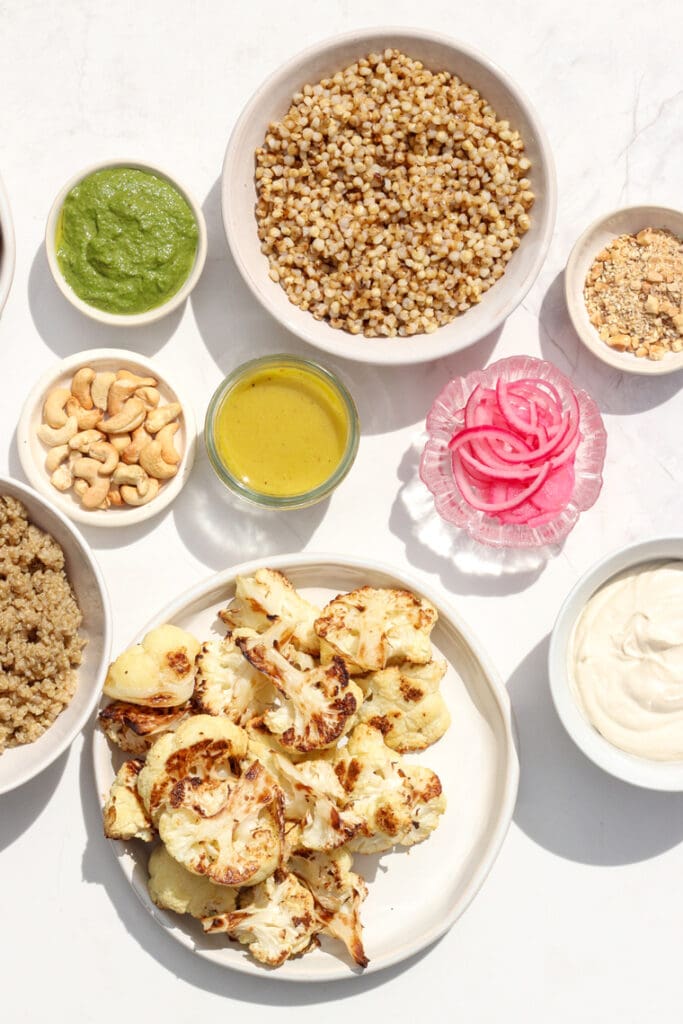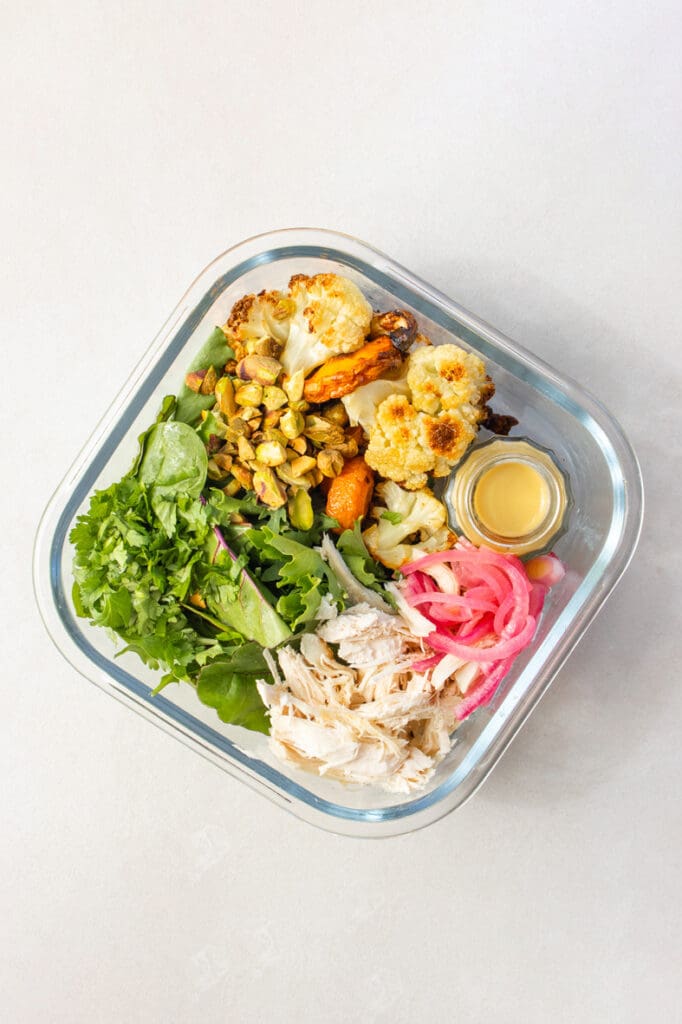Shop your fridge and pantry
Before heading to the supermarket, take stock of what’s in your pantry and fridge; then plan for meals that utilise the ingredients you already have on hand. Dishes like frittatas, curries, stir-fries, soups, and veggie-packed fritters are perfect for making the most of odds and ends. You can also revive wilted herbs by turning them into flavourful pestos and dips. Shopping your pantry and fridge first not only saves money but also helps prevent food waste.
Meal planning – buy what you need, eat what you buy!
Dedicate time each week to meal planning, so you can say good-bye to last-minute supermarket dashes and impulsive purchases. With a well-thought-out plan, you’ll buy what you need and eat what you buy.
Tip: Be wary of deals; just because something is on sale doesn’t necessarily mean you’re going to save money—remember, wasted food is wasted money. So, if it’s not on your plan, you may want to think twice.
We understand life can be busy, leaving little time for meal planning—so why not let us do it for you! Simply join our membership program and get a waste-free menu delivered straight to your inbox every Saturday morning. Start our 7-day free trial today!
Stock up on staples
Stock up on staples like grains, nuts, seeds, pasta and tinned goods. These pantry essentials have a long shelf life, so you’ll always have the basics on hand for creating budget-friendly meals. Buying from whole foods refillery stores like goodfor, is also a great way to cut down on costs and reduce packaging waste.
Tip: Compare the price per 100g among different brands to ensure you’re getting the best deal.
Shop in season
Out-of-season produce on our supermarket shelves are usually imported from overseas or grown in artificial environments for the effective growth and ripening of fruits and veggies.
When fruits and vegetables are in season, there’s usually an abundance of supply, leading to lower prices. Seasonal produce doesn’t require as much effort to grow, transport, and sell, which translates to cost savings for both producers and consumers (plus In-season produce is fresher, tastier and more nutrient-rich).
Utilise frozen fruits and veggies!
Don’t underestimate the power of the freezer aisle. Frozen fruits and veggies are just as nutritious as their fresh counterparts and can be more cost-effective. You’ll have less waste since they won’t spoil quickly, and you can use them in smoothies, stir-fries, and even baked goods.







